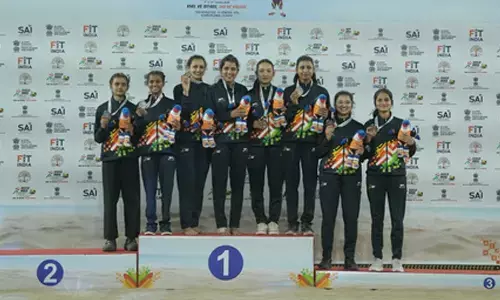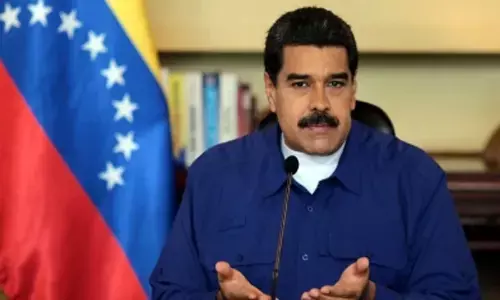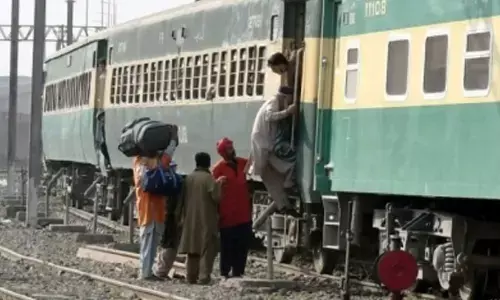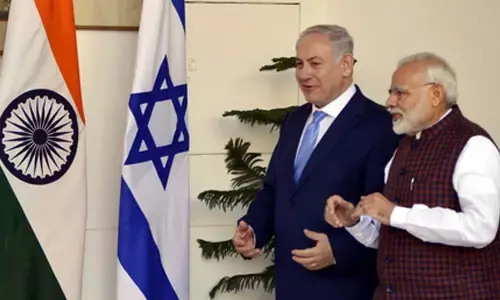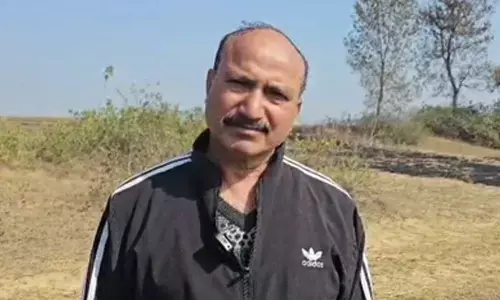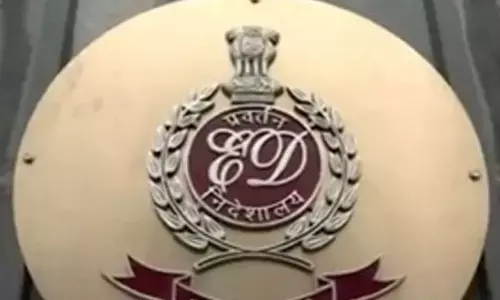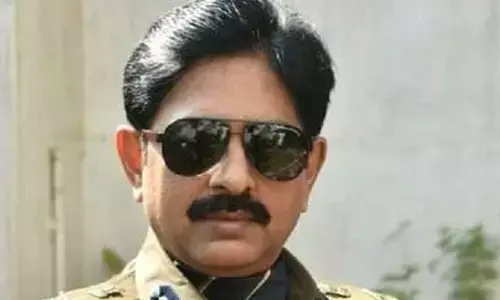Time to revamp the Indian Foreign Service
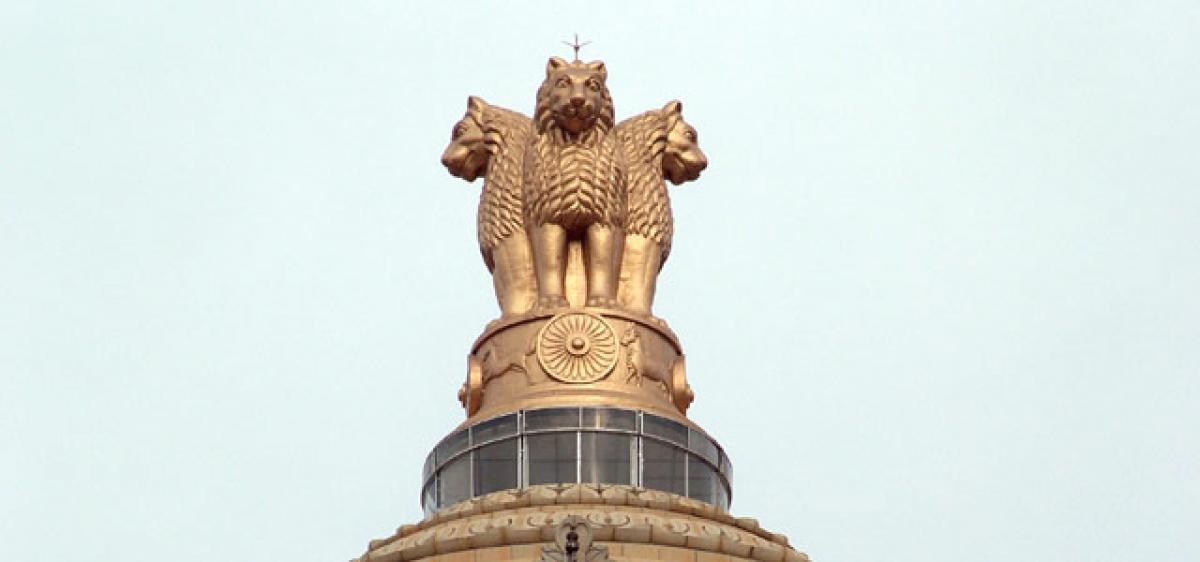
One of the most awaited examinations in India is the civil services examination, wherein thousands of aspirants apply every year to try their luck at the elite government jobs, mainly the IAS (Indian Administrative Service), IFS (Indian Foreign Service) and the IPS (Indian Police Service) among others.
One of the most awaited examinations in India is the civil services examination, wherein thousands of aspirants apply every year to try their luck at the elite government jobs, mainly the IAS (Indian Administrative Service), IFS (Indian Foreign Service) and the IPS (Indian Police Service) among others.
Even though the number of aspirants applying for the civil service examinations is really high, one particular division that has been marred by a low count of workforce is the IFS (Indian Foreign Service).
The smaller number of IFS officers do pose a significant challenge in terms of how India manages its operations abroad and how it formulates and acts on the foreign policy with regard to different countries.
In comparison to other countries like China and the United States, India only has a total of 900 officers whereas China has close to 4000 and the United states has 20000 working officials and diplomats.
The fewer number of diplomats is also a problematic concern in terms of meeting the human resource requirement for over 120 missions and 49 consulates stationed abroad.
So the bigger question at hand for the Foreign Service division is to manage the shrinking number of officials. And for doing so there are few problems that need to be addressed.
What ails the IFS?
- Primary concern is improving the tally of IFS personnel with the ideal figure pegged at 900
- Government agrees on lateral entry of people in the Policy Planning Division
- Foreign policy think tanks should not be reduced to resting stables for the retired
- Need for an emphasis on states, their needs can’t be discounted anymore
Parliamentary Committee Concerns
- Concerns have been raised by a parliamentary committee over the way in which candidates are being recruited to the prestigious Indian Foreign Service (IFS) and trained.
- The Indian Foreign Service (IFS) is one of the most prestigious services in the country and only a few people get a chance to enter it.
Present way of recruitment:
- Those who desire to be a part of this service and become a career diplomat need to clear the Civil Services Examination (CSE) first.
- After selection, candidates go through a gruelling training period during which they are taught various aspects of diplomacy.
- This process has been going on for decades, but it needs to change now.
- Why generalists should not be
- recruited for this job?
- A diplomat is a representative of his country and a foot soldier of its foreign policy. Good armies fight wars and win.
- The reason being that diplomacy is not the job of a ‘generalist’, which anyone can try their hands at.
What kind of people need to be recruited?
- Being a specialised job, diplomacy needs people who have prior theoretical and historical knowledge of the subject before being trained in its practical aspects.
- Diplomacy involves the conscious pursuit of the national interest through well-designed policies and initiatives. That requires an understanding of international relations including the nature of the state, political systems, international order, among others.
- In other words, the job of diplomacy demands that its practitioners be first well equipped with the basic knowledge of the subject of international relations.
- A diplomat is a representative of his country and a foot soldier of its foreign policy.
- Good armies fight wars and win.
- Good diplomats deter wars and win.
- Being a specialised job, diplomacy needs people who have prior theoretical and historical knowledge of the subject before being trained in its practical aspects.
- Diplomacy involves the conscious pursuit of the national interest through well-designed policies and initiatives.
- It requires an understanding of international relations including the nature of the state, political systems, international order, among others.
- It means the job of diplomacy demands that its practitioners be first well equipped with the basic knowledge of the subject of international relations.
- That there are quality issues with recent recruits to the IFS was highlighted by a parliamentary committee last year.
Other challenges
- There is overall ‘deterioration’ in the quality of recruits to the IFS. The parliamentary committee noted that, unlike in the past, when only those with the highest ranks in the CSE were taken into the service, it was surprised to find that even low-ranked candidates are now able to enter the service.
- ‘This development is both a symptom and a reason for the erosion of prestige in the IFS’, noted the Committee.
- The second concern that the committee highlighted was the low strength of the IFS.
- It is well known that when compared to India’s global profile and its image as an emerging power in the international system, it needs many more officers in the field with a deeper knowledge and understanding of the areas they are about to serve in.
What can be done?
- Among the many ideas that have been floated to address such problems include ‘lateral entry’ and ‘revolving door’.
- Lateral entry would involve posting an officer from any other All India service to an overseas mission to execute a specific job.
- For instance, a railway service official is posted for executing railway projects in a neighbouring country, or a Commerce Ministry official is posted to handle complex trade negotiations.
- But lateral entrants are not given an opportunity to grow into the service.
- They have had to return to their parent service after the completion of assigned tasks.
- The advantage of absorbing such officials into the IFS is that they are exposed to an international work environment and could be valuable assets in carrying out relevant tasks pertaining to the work of overseas missions.
- The other option to revamp the IFS is to introduce the ‘revolving door’ concept.
- Experts in academia, think-tanks or industry should be given an option to serve in the diplomatic corps.
- The walls between these fields and diplomacy need to be broken down and inter-operability need to be given a chance.
- The United States has been following this kind of inter-operability for decades, and with success.
- Another critical area of revamp pertains to the IFS entry rules, which need to be made more specialised.
- Only those candidates who have an academic background in the subjects of international relations, strategic studies, security studies or foreign policy studies should be allowed to appear for the examination, which could either be conducted by a separate body or be a separate exam conducted by the Union Public Service Commission (UPSC) itself.
- The clear advantage of such a change is that those who have already done a degree course in subjects related to international relations and foreign policy would have a better understanding of the job requirements prior to joining the service, unlike candidates with an engineering or medicine or management background who have no prior knowledge or very little knowledge of the subject.
- Since candidates with an academic background in the discipline of international relations and allied areas would have already invested in understanding the subject, they would only require training in specific skill sets after being chosen into the service — like language training for instance. That, in turn, would enhance the quality of the service as a whole.
- The government has tried this method of recruitment in other fields.
- For instance, getting into the Indian Engineering Services and Indian Geological Services requires candidates to have an engineering and geography/geology background, respectively. The time has come to apply the same standards to the IFS, if India wants to have a large number of quality diplomats.
- The argument is not that existing IFS recruits are of lesser quality but to highlight the fact that the rank of candidates in a ‘generalist exam’ decides their fate whether they would become career diplomats or not.
- One problem though is that very few educational institutions offer courses in International relations and even fewer provide quality education in the field, with the School of International Studies, Jawaharlal Nehru University and Jadavpur University being notable exceptions.
- The government needs to build institutions focused on international relations, defence, security and diplomatic studies in order to get the best skilled talent in the field.
- This is being practiced by many countries such as Russia and France, among others, where they groom students from these fields to become career diplomats. With changing times and the growing profile of India in the international system, there is a need for a change in the structure and process of recruitment into this very important service.
Beyond Reform
- If one were to pinpoint some of the drawbacks of think tanks working on foreign policy, they are as follows:
- First, most think tanks, especially government ones, and to some extent even private ones are overstaffed with retired bureaucrats. Their baggage some of which is totally out of sync with the current world scenario is not really helpful.
- Secondly, most think tanks invest heavily in senior analysts, while not enough importance is given to mentoring juniors, as a result of which most think tanks turn into parking lots for both juniors and retired officials.
- Thirdly, most experts in these think tanks are not country experts, but instead focus on India’s ties with these countries. There are a large number of so called Pakistan experts, who themselves have not even visited Pakistan once and do not know the language apart from of course having an understanding of the domestic politics of those countries.
- Fourthly, there are only a handful of strategic thinkers who have a mastery of both economics and foreign policy. In the current situation, it is important for foreign policy thinkers to have a sound understanding of not just International Relations (IR) theory, but also complex economic issues.
Collective Effort
- Apart from the IFS and think-tanks, Indian scholarship on foreign policy itself has failed.
- With India’s increasing clout it is important to popularise Indian strategic thought and even military history and concepts.
- With the current PM’s thrust on promoting Indian culture and soft power globally, and some of his terms ‘sab ka saath, sab ka vikaas’ being popular even among foreign leaders including US Secretary of State, John Kerry. Many of the joint statements too have sharp Hindi such as ‘saanjha prayaas’, it is likely that Indian strategic thought may find space in the global discourse on strategic affairs.
‘Glocal’ Perspective
- Apart from spending time overseas for fellowships, it is important for scholars of IR to spend greater time in states, which will have an impact on India’s foreign policy. While IR scholars have started spending time in regions like the Northeast and Kashmir, it is also important to spend more time in other states.
- For instance, those studying the phenomenon of ‘constituent diplomacy’ and participation of state governments in foreign policy would do well to spend more time in states which have been successful in reaching out to the outside world and forging links in the economic and non-economic spheres, such as Andhra Pradesh, Gujarat, Tamil Nadu
- Apart from the above stakeholders, the private sector too needs to invest more in Indian think tanks. While certain groups have taken the initiative, others prefer to set up chairs in foreign think tanks which do no real favour to the development of India’s strategic thought.
- In conclusion, it would be fair to say that for a more dynamic foreign policy it is essential not just for the government to introspect, but all stakeholders. One of the necessary pre-requisites for this is that they all work closely and get over the turf mentality.
Conclusion
- The time has come to apply the same standards to the IFS, if India wants to have a large number of quality diplomats.
- The argument is not that existing IFS recruits are of lesser quality but to highlight the fact that the rank of candidates in a ‘generalist exam’ decides their fate whether they would become career diplomats or not.
- With changing times and the growing profile of India in the international system, there is a need for a change in the structure and process of recruitment into this very important service.








